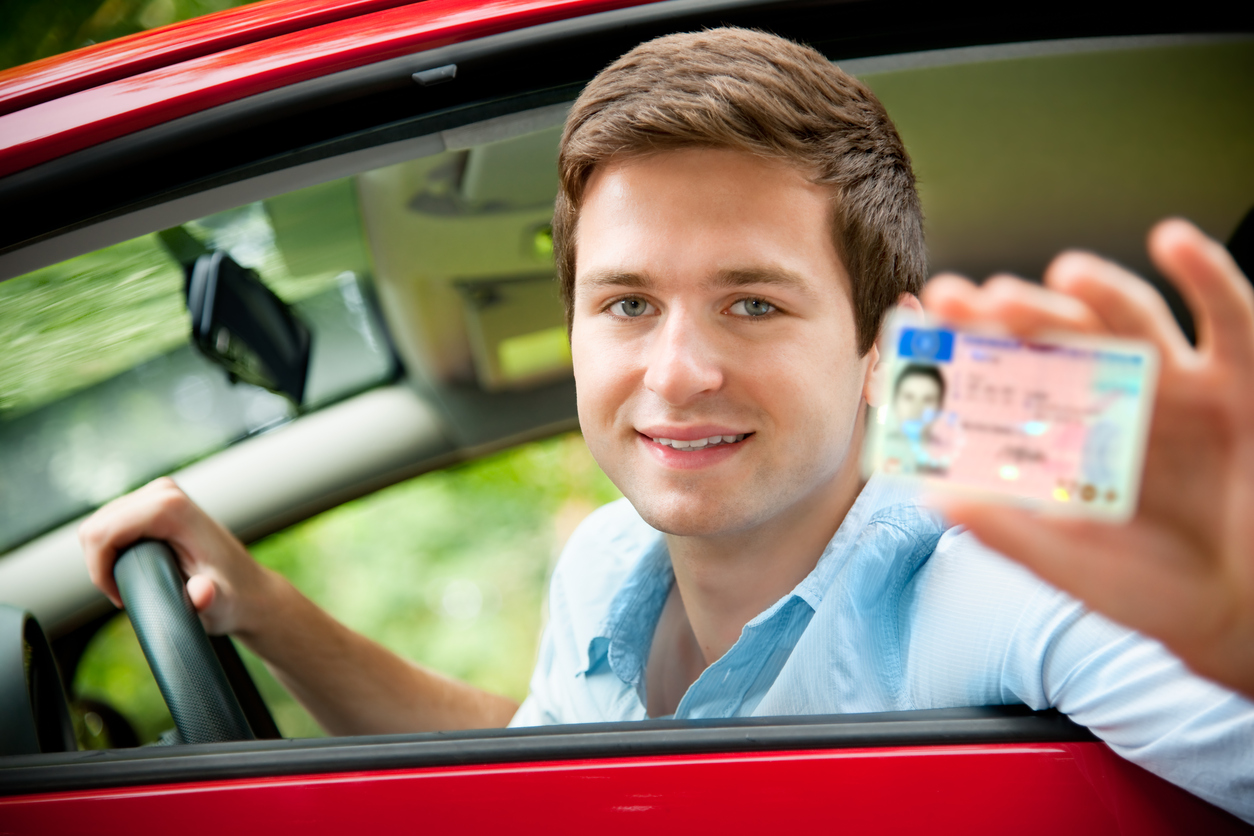WGK Personal Injury Lawyers | August 19, 2020 | Maryland Law

A teenager getting their driver’s license is an almost universal milestone that every teen looks forward to. It also fills every parent with a strange mixture of pride, fear, and dread. Parents’ fears are not unfounded. Motor vehicle accidents are the number one cause of death among those 16-19 years of age. According to the CDC, six teenage drivers die in car accidents every day.
Immaturity, incomplete development of reasoning skills, and inexperience all work to increase the risk of teenage driving. Teen drivers, compared to other age groups, also have the lowest rate of seatbelt usage. Not wearing a seatbelt significantly increases the likelihood of serious injuries and fatalities during a crash.
Maryland’s Graduated Licensing System
Maryland has instituted a Rookie Driver Program that is aimed at reducing the number of injuries and fatalities caused by young, inexperienced drivers. The program applies to all new drivers, requiring them to gain experience under the supervision of an experienced driver.
During the licensing process, specific restrictions are imposed, and there are strict sanctions for any illegal driving activity during the program. There are three levels of the program:
- A learner’s permit—issued when a driver is at least 15 years and nine months. Requires that the person holding the permit only drive with an experienced driver who is no younger than twenty-one and has a minimum of three years of driving experience. You are not eligible for a learner’s permit if you had ten or more unexcused absences in the previous school semester.
- A provisional license—When the driver graduates to a provisional license, there will be restrictions in place until the person turns eighteen. The restrictions on a provisional license include no driving between the hours of midnight to 5 a.m. unless a qualified supervising driver accompanies them. With a provisional license, the driver is prohibited from using any wireless device, including hands-free, except to call 911.There are exceptions for driving to and from a school-sanctioned activity or work). The driver also cannot have passengers for five months after obtaining the provisional license, unless they have a qualified supervising driver in the vehicle with them, or all passengers live in the same household.
- A driver’s license—A driver’s license will be issued when the person completes the first two-steps of the program and reaches their eighteenth birthday.
Can My Teen Drive a Motorcycle in Maryland
To drive a motorcycle in Maryland, you need a valid Class M license. The license is available to those under the age of 18, subject to the same rules as the graduated licensing program. To receive a Class M license, those under the age of 18 must complete an approved driver’s education course and an approved motorcycle safety course. The courses are provided by the Motorcycle Safety Program and include classroom and on-the-motorcycle riding experience.
Maryland’s Zero Tolerance Policy For Underage Drinking and Riding

Maryland has a strict no-tolerance policy for minors who drink with any alcohol in their blood. Any driver under the age of 21 will be issued a license that says, “Under 21 Alcohol Restriction.” The law states explicitly that an alcohol concentration of 0.02 or higher is prima facie evidence of a violation of the alcohol restriction and can result in a two-year suspension of the license.
The driver with an alcohol restriction on their license can be charged with a DUI for a blood alcohol level of 0.02 or higher. For adult drivers without an alcohol restriction, the blood alcohol level must be 0.08 or higher for a DUI. The zero-tolerance policy means that underage drivers can be charged both under the provisional license laws and the separate DUI statutes.
Maryland’s Efforts to Combat Driving While Distracted

Distracted driving is an epidemic in our country, and young drivers are more likely than other age groups to talk, text, and otherwise engage in distracting activities while driving. Maryland carries some of the most stringent restrictions about cell phone usage while driving in the country, and those with provisional licenses face the loss of their ability to drive if caught talking or texting on their cell phones while driving.
Maryland prohibits the use of a hand-held device while driving, for either talk or texting. While adult drivers can use a hands-free device, those with a provisional license are prohibited from doing so unless it is to call 911.
The National Highway Traffic Safety Administration (NHTSA) defines distracted driving as any activity that diverts your attention from driving. That includes:
- Talking or texting on the phone
- Eating or drinking while driving
- Talking to passengers in the vehicle
- Attempting to use the stereo, navigation system or entertainment system in your car
- Personal grooming
It is impossible to text and drive safely. Sending or reading a text means taking your eyes off the road for an average of five seconds at a time. Even at the conservative speed of 55 mph, it equates to driving the length of a football field with your eyes closed.
If you have a teen driver, make sure you are familiar with the rules, regulations, and laws governing their driving experience. Please make sure they are aware of the dangers of drinking and driving and distracted driving. The hope behind the strict regulations that can remove their ability to drive if they are caught driving if having had any alcohol, or having their license revoked for cell phone usage, is to let them safely gain driving experience.
Contact the Baltimore Motorcycle Accident Law Firm of WGK Personal Injury Lawyers Today For Help
For more information contact the Baltimore motorcycle accident law firm of WGK Personal Injury Lawyers to schedule a free initial consultation.
WGK Personal Injury Lawyers
14 W Madison St, Baltimore, MD 21201, United States
(410) 837-2144
